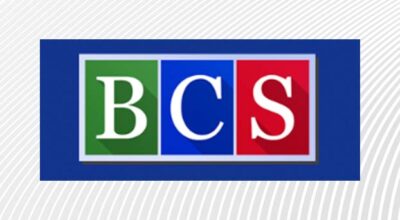Students pitch product ideas to the sharks
Published 8:04 pm Tuesday, December 12, 2017
From Beaufort County Community College
The sharks circled students’ business proposals at Beaufort County Community College’s second Shark Tank. Students from both the community college and Washington Montessori Public Charter School pitched their ideas for new products to a panel of business experts. The event was a collaboration of BCCC business administration instructor Cynthia King and Washington Montessori’s director of administration and finance Austin Smigel. Some students are dual-enrolled through the Career and College Promise program, letting them take college classes for free while in high school.
The range of products included safety chips that could turn off a phone while a vehicle is in motion, a smart desk that can charge all battery-operated devices sitting on it, showerheads with display lights and music and an app that will diagnose engine problems based on the sounds it makes.
One group proposed football helmet padding that changed color based on the force of impact. They researched the physical materials needed to make such a product possible. This padding would immediately indicate if the force of an impact was great enough to cause a head injury. The group hoped new awareness of the prevalence of head injuries in football could help such a product take off. All groups had to think about who would buy their product, for how much and how much it would cost to produce it.
Jim Chrisman, BCCC trustee and CFO of Tideland Electric, Lentz Stowe, director of BCCC’s Small Business Center, Greg Coltrain, CEO of TriCounty Broadband and chair of the BCCC Foundation, and Steve Jones, Early College High School liaison at BCCC judged the product proposals, and they asked the students to defend their research. The judges asked questions about market analysis, product development costs research and target markets.
 “How much would the app development cost?” asked Coltrain of a group proposing Honk!, the car repair app. “How many would you need to sell at $1.99 to get your production costs covered?”
“How much would the app development cost?” asked Coltrain of a group proposing Honk!, the car repair app. “How many would you need to sell at $1.99 to get your production costs covered?”
“Has anyone looked into how one would go about getting the needed boar hair for this price point?” asked Chrisman of a group who proposed hair brushes with bristles made of boar hair.
“We went through a whole section of presentation,” said Austin Smigel, adding that the students had to prepare for the questions they would be asked. “Being able to field questions like this is a good life experience to have.”
Reflecting on his own involvement with a future business leaders club while in school, Coltrain said, “I had no idea that that one club would have so much impact.”
While these class projects are not heading into development anytime soon, they helped students think through research and development, marketing and finance; but one day, with some perseverance, some of these products could be seen on the shelf or online.







